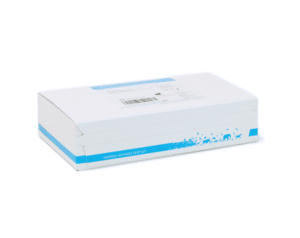
Giardia in Dogs
Giardiasis, sometimes called “beaver fever,” is an intestinal infection caused by the giardia parasite. It can affect many mammals including dogs and humans.
What exactly is giardia?
As mentioned above, giardia is a parasite that can find its way into your dog’s intestine. It can even make its way inside humans which we’ll explain further down.
There are different forms (trophozoites and cysts) of the parasite, but they both can cause similar effects in your dog. Cysts can survive for months in a wide range of different environments. While other parasites die in the winter, giardia will last and even thrive in cold or moist conditions.
How does your dog get giardia?
Giardia will typically be picked up by a dog ingesting it into its system. Typically, this will occur when a dog eats something or drinks something that has been contaminated with faecal matter.
The offspring of this parasite are shed in animal faeces. The most common method of infection is waterborne because the parasite prefers a cool, moist environment. Giardia can survive in these conditions for up to several months. Dogs may also become infected by ingesting infected faecal material directly.
Giardiasis is more common among young animals and those confined in groups, such as in kennels or boarding facilities.
Once your dog has ingested giardia, the mature parasites known as trophozoites infect the small intestine. They grow, multiply, and are passed in the faeces. Which allows the parasite to spread from animal to animal.
What are the signs and symptoms?
There are various symptoms of this condition that you should be aware of and watch out for in your dog. These include:
• Severe Diarrhea
• Vomiting
• Shaggy, unkempt, dry coat,
• Reduced weight
• Dehydration
You might think that you can check for cysts in the faeces of your dog, but they are invisible to the human eye. If you want to know whether your dog has giardia, you’ll need to get them checked out by the vet.
Some infected dogs never show signs or will spontaneously experience signs of giardiasis months after becoming infected. Puppies and dogs with weakened immune systems can experience more severe reactions to infection.
Is it dangerous?
To an extent, giardia is dangerous for your dog. Any sudden weight loss should be a cause for concern. Particularly, if your dog has a suppressed immune system. The parasite can even cause death if untreated, though that is quite rare. In most cases, your dog will simply have diarrhea and/or vomiting. This may lead to dehydration. You will still need to make sure that you contact your vet and get the appropriate treatment plan.
What treatment options are there?
Your vet will be able to run tests to check whether your dog is suffering from giardia and discuss treatment options with you. Typically, the best form of treatment will be medicine (antibiotics and/or antiparasitic drugs) taken from the comfort of your own home. With proper medicine, giardia can be eliminated within two weeks.
However, be aware that at the end of the treatment, you will need to give your dog a good and thorough bath to get rid of any cysts that could be on your dog’s coat. Pay particular attention to the hind legs of your dog as this is where the cysts are most likely to be.
Any toys, furniture, and carpet they may have contact with should also be cleaned to make sure that there are no cysts around the home. While surfaces can be cleaned with bleach, carpet should be steam cleaned, and any toys must be soaked in boiling water. Remember, this parasite is very tough to kill, and CAN affect humans.
Who’s at risk?
Any dog can get giardia from water or food that has been infected. Puppies and older dogs or dogs with weak immune systems are more at risk than others. For dogs like this, you need to take extra care.
You also need to be aware that if your dog has giardia, it can spread to another pet in your home. While cross-species infections are uncommon they can happen. That is why you need to be careful when handling your dog’s faeces and wash your hands thoroughly.
While the condition is not typically life-threatening, it may cause incredible discomfort for your dog. As such, you need to prevent it where possible. Before you take your dog for a walk make sure they have had plenty of water and/or consider bringing water from home for them to drink. Keep an eye on your dog while they are out, making sure that they do not eat anything off the ground by training your dog to leave food they find on the ground alone.
Lastly, make sure that you are picking up your dog’s faeces as soon as they leave them and avoid areas where there may be large amounts of dog faeces laying around. An example of this would be a dog park. They can be a breeding ground for giardia.
Bioscint Engineering supplies rapid tests that can aid veterinarians in diagnosing Giardia amongst other rapid tests available from our range. For an additional peace of mind, we also supply the Zoetis Vetscan VUE Rapid Test Reader which can help in confirming diagnosis through a use of an app installed on your mobile phone or tablet using Android or Apple. Kindly get in touch with us for more information on pricing or visit our online shop.
Source:trupanion







